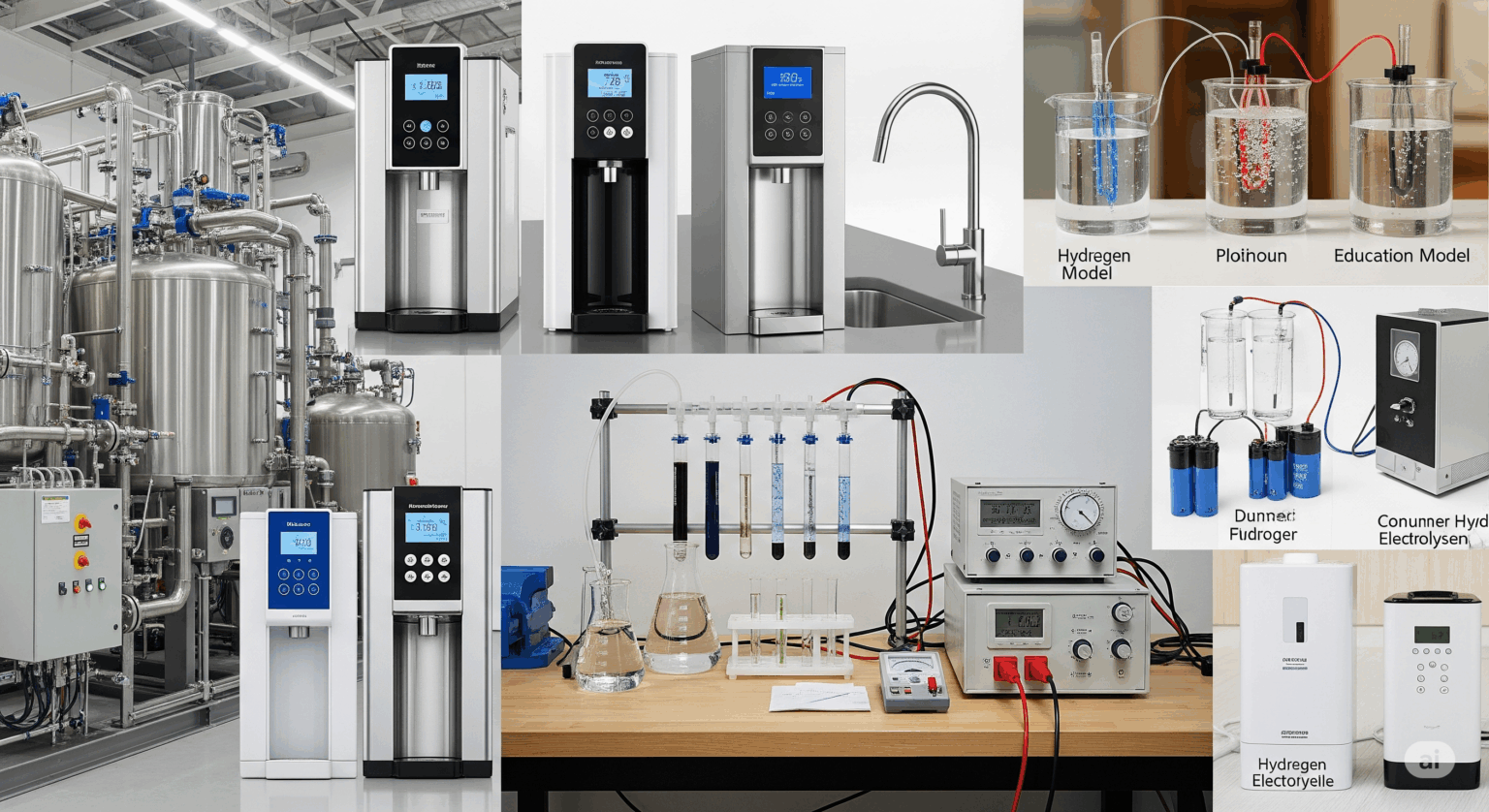Safety of Household, Commercial and Similar Electrical Appliances
Electrolysers
Strategic Recommendations for Electrolysers
- Start BIS Certification Process Now
Begin safety testing, document preparation, and audit readiness to avoid last-minute compliance issues. - Partner with Compliance Experts
ERA’s technical team can assist in BIS application filing, lab coordination, and ISI mark approval. - Contact ERA Support Team
📧 cs@eraglobal.co.in | 📞 +91 9599296331 | 💬 WhatsApp
For guidance on BIS licensing, Schedule A declarations, and factory inspection preparation. - Track Notifications & Circulars
Subscribe to the ERA Newsletter for QCO updates, BIS circulars, and enforcement schedules. - Ensure Marking Before Sale
Affix ISI marking to all units and ensure packaging meets compliance before shipment to avoid legal penalties.

| Section | Details |
|---|---|
| Product Name | Electrolysers |
| Applicable Indian Standard (IS) No. | IS 302 (Part 1):2024 |
| Title of Indian Standard | Household and Similar Electrical Appliances – Safety – Part 1: General Requirements |
| Quality Control Order | Safety of Household, Commercial and Similar Electrical Appliances (Quality Control) Order, 2025 |
| Notification & Amendments | Notified via S.O. 2232(E), dated 19 May 2025 Supersedes QCO 2024: S.O. 4098(E), dated 17 Sept 2024 |
| Final Enforcement Date | Large & Medium Enterprises: 19 March 2026 Small Enterprises: 19 June 2026 Micro Enterprises: 19 September 2026 |
| Objective & Scope | To ensure operational, electrical, and material safety of electrolysers through mandatory BIS certification. |
| Products Covered | Electrically powered electrolysis equipment for industrial, laboratory, or household use, including hydrogen generators and water ionizers. |
| Exemptions | - Products exclusively for export - R&D imports (up to 200 units/year) - Schedule A stock clearance allowed for up to 6 months post-enforcement |
| Industries Impacted | Industrial gas equipment manufacturers, laboratory equipment suppliers, renewable hydrogen technology firms |
| Mandatory Compliance | - Must conform to IS 302 (Part 1):2024 - BIS certification under Scheme-I is mandatory - ISI mark must be affixed on product and packaging |
| Next Steps for Stakeholders | Apply for BIS licence, conduct testing in BIS-approved labs, ensure ISI marking, declare Schedule A stock |
| Legal Framework Provision & Enforcement | Enforced under BIS Act, 2016 by BIS with inspection and prosecution authority |
| Penalties | Non-compliance may result in seizure of stock, license suspension, fines, or imprisonment up to 2 years, or both |
| Conclusion | From 19 March 2026, all electrolysers sold, manufactured, or imported in India must be BIS-certified to IS 302 (Part 1):2024 and bear the ISI mark, ensuring safety, quality, and market compliance. |
| References/Annexures | - QCO 2025: S.O. 2232(E) [19 May 2025] - Superseded QCO 2024: S.O. 4098(E) [17 Sept 2024] |
Ready to start your certification journey?
Let us help you navigate regulatory challenges and achieve certification with ease. Leave us your details, and we’ll get back to you—or request a free consultation today.
Get in touch with us today
Notification
Electrolysers are regulated under the Safety of Household, Commercial and Similar Electrical Appliances (Quality Control) Order, 2025, notified via S.O. 2232(E) on 19 May 2025 under the BIS Act, 2016, replacing the 17 September 2024 notification.
Overview
Electrolysers are devices that use electrical energy to decompose substances — most commonly to split water into hydrogen and oxygen. They are used in industrial hydrogen production, renewable energy systems, laboratories, and specialized home applications. This regulation aims to prevent electrical hazards, chemical leakage risks, and equipment failure.
Objective & Scope
The QCO mandates compliance with IS 302 (Part 1):2024, covering electrical insulation, overload protection, safe material construction for chemical exposure, thermal stability, and protective measures for user safety.
Products Covered
- Industrial hydrogen electrolysers
- Water ionizers
- Laboratory-grade electrolysis systems
- Small-scale electrolysers for education or domestic use
Exemptions Provided
- Export-only products
- R&D imports (up to 200 units/year, not for sale)
- Schedule A stock clearance within six months post-enforcement
Industries Impacted
- Hydrogen fuel technology companies
- Industrial gas manufacturing sector
- Laboratory and educational equipment suppliers
- Specialty water treatment system producers
Mandatory Compliance Requirements
- BIS licence under Scheme-I is compulsory
- Conformance with IS 302 (Part 1):2024 testing standards
- ISI mark must be permanently affixed to the product and packaging
Enforcement Timeline
- Large & Medium Enterprises: 19 March 2026
- Small Enterprises: 19 June 2026
- Micro Enterprises: 19 September 2026
Next Steps for Stakeholders
- Initiate BIS licence application
- Conduct BIS-approved lab testing for product safety compliance
- Update product marking and packaging
- Declare Schedule A stock for clearance
Legal Provisions, Enforcement & Penalties
The BIS will enforce the regulation under the BIS Act, 2016.
Penalties for non-compliance include:
- Seizure of unmarked/non-compliant stock
- Suspension or cancellation of the license
- Fines and/or imprisonment up to 2 years, or both
Conclusion
From 19 March 2026, all electrolysers must be BIS-certified under IS 302 (Part 1):2024 and display the ISI mark before sale in India. This ensures electrical safety, chemical handling safety, and consistent manufacturing quality — making timely certification critical to uninterrupted operations.
Ready to start your certification journey?
Let us help you navigate regulatory challenges and achieve certification with ease. Leave us your details, and we’ll get back to you—or request a free consultation today.
